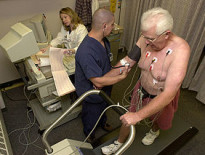
Image credit: Jeff’s Gourmet Sausage Factory, from their Facebook page
Most humans have spent most of human history nearly starving to death. So it’s no surprise that we spend a lot of time thinking about food. And it’s no surprise that food has acquired cultural, social, and religious significance in almost every society. Because food is so important, and because it’s nearly impossible for us not to ascribe powerful effects to anything important to us, every society imbues special health properties to various foods.
From believing that some foods are aphrodisiacs to believing that some foods improve sleep or fertility or athleticism, superstitions about the effects of food on health are ubiquitous. But we are modern, rational creatures that would never subscribe to such claptrap. Right? Wrong. We also cling to our own mythology about the health effects of food but we dress up our ignorance in scientific words. We (correctly) sneer at anyone who asserts that ingesting powdered rhinoceros horn improves erectile function. After all, there’s no scientific reason to even believe such a thing, and the connection between a rhinoceros horn and erectile dysfunction is purely visual. That’s like eating a giraffe because you want to be taller.
But take the assertion that eating saturated fat increases the risk of heart disease. We all believe that. After all, saturated fat is a molecule. Molecules are very scientific, which means there are men in white lab coats somewhere with blinky machines proving that saturated fats are very very bad to eat. In fact, current cardiovascular guidelines from respected groups like the American Heart Association suggest low consumption of saturated fats and high consumption of polyunsaturated fats. And the American Heart Association would never recommend rhinoceros horn.
This week’s study is an important reminder that we know much less than we believe, but before we dive into it, allow me a paragraph to make sure we know what we’re talking about.
There are three families of energy containing molecules in food – fats, carbohydrates, and proteins. Fats are further subdivided into saturated fats and unsaturated fats. Saturated fats are typically found in dairy products and fatty meats and are typically solid at room temperature (like butter, lard, and beef fat). Unsaturated fats are found in vegetable oils and fish oils and are typically liquid at room temperature (like olive oil).
For decades we have been hearing and repeating to our patients that saturated fats are unhealthy for hearts and unsaturated fats are healthy. A meta-analysis (study of studies) published in the current issue of Annals of Internal Medicine attempted to review all the studies that have ever examined the link between saturated and unsaturated fats and cardiovascular health. What they found was underwhelming. There were 45 observational studies, the kind that I routinely criticize in my posts and urge readers to ignore. There were 27 randomized studies that looked at the effects of fatty acid supplementation on heart disease. All of them tested whether supplements of unsaturated fatty acids (like fish oil) helped prevent stroke and heart attacks. None of them tested whether supplements of saturated fatty acids (lard capsules!) increased cardiovascular risks.
The results were meh. The data as a whole showed no significant increase in risk from saturated fats, nor decrease in risk from unsaturated fats. The authors conclude
“[T]his analysis did not yield clearly supportive evidence for current cardiovascular guidelines that encourage high consumption of polyunsaturated fatty acids and low consumption of saturated fats.”
Not surprisingly none of the experts quoted in the media coverage said the simple truth, which is that we have no idea if dietary fats affect health apart from the calories they contain. It would be nice to hear an expert declare “We have no clue about whether some fats are healthy or unhealthy” since that statement would be solidly supported by the evidence.
How did saturated fat’s bad reputation ever get started? I’m not sure. It’s conceivable some observational study that should have been ignored suggested that saturated fat was unhealthy. It’s also possible that saturated fat’s ignominy began because lard and butter look so much like the fat in a cholesterol plaque that blocks an artery. Olive oil is liquid. How could that block an artery? Maybe the whole idea was as simple-minded and as visual as the rhinoceros horn remedy.
Learn more:
Saturated Fat Is Back! (NPR)
Saturated fat ‘ISN’T bad for your heart’: Major study questions decades of dietary advice (Daily Mail Online)
Review questions effects of saturated fats on heart disease (Fox News)
Association of Dietary, Circulating, and Supplement Fatty Acids With Coronary Risk: A Systematic Review and Meta-analysis (Annals of Internal Medicine)
Even More Studies You Should Ignore (my last post about fish oil)

